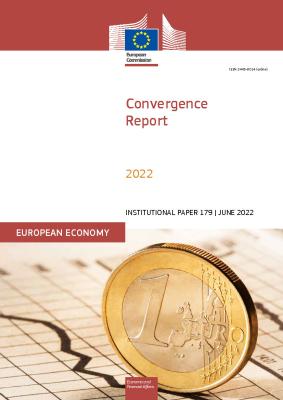The Treaty on the Functioning of the European Union requires the Commission and the European Central Bank to issue these reports at least once every two years or at the request of an EU Member State which would like to join the euro area.
The conditions which the Member States must meet, and which the Reports therefore examine, are:
- the convergence criteria (price stability, sound public finances, exchange rate stability and convergence in long-term interest rates)
- compatibility of national legislation with the ‘acquis’ (existing EU legislation) as regards the national central bank, notably its independence and that of the members of its decision-making bodies, its objectives, and its integration into the European System of Central Banks
The Treaty on the Functioning of the European Union (TFEU Article 140) states that at least once every two years, or at the request of a Member State with a derogation (i.e. not participating in the euro area), the Commission and the ECB must report to the Council on the progress made with respect to convergence.
On the basis of its assessment, the Commission submits a proposal to the ECOFIN Council which – having consulted the European Parliament, and after discussion among the Heads of State or Government – decides whether the country fulfills the necessary conditions and may adopt the euro. If the decision is favorable, the ECOFIN Council takes the necessary legal steps and – based on a Commission proposal, having consulted the ECB – adopts the conversion rate at which the national currency will be replaced by the euro, which thereby becomes irrevocably fixed.
EU Member States currently outside the euro area
At present, there are 8 EU Member States that do not participate in the euro area - Bulgaria, Croatia, Czechia, Denmark, Hungary, Poland, Romania and Sweden. Denmark has negotiated opt-out arrangements and will therefore not be the subject of a convergence assessment until they request it.
On 1 June 2022, the Commission assessed in its convergence report that Croatia fulfils the conditions for the adoption of the euro on 1 January 2023.
Convergence reports

- Report
- Directorate-General for Economic and Financial Affairs
This paper provides assessment of Member States with a derogation regarding their fulfilment of the conditions for euro adoption.

- Report
- Directorate-General for Economic and Financial Affairs
Assessment of Member States with a derogation regarding their fulfilment of the conditions for euro adoption.

- Report
- Directorate-General for Economic and Financial Affairs
Assessment of Member States with a derogation regarding their fulfilment of the conditions for euro adoption.

- Report
- Directorate-General for Economic and Financial Affairs
Assessment of Member States with a derogation regarding their fulfilment of the conditions for euro adoption.

- Report
- Directorate-General for Economic and Financial Affairs
The 2016 Convergence Report, adopted on 7 June 2016, is a regular biennial report and examines progress with convergence in seven Member States.
Archived
- Convergence Report 2014
- Convergence Report 2013 on Latvia
- Convergence Report 2012
- Convergence Report 2010
- Convergence Report 2008
- Convergence Report 2007 on Cyprus and Malta
- Convergence Report 2006 on Lithuania and Slovenia
- Convergence Report 2006
- Convergence Report 2002 on Sweden
- Convergence Report 2000 on Greece
- Convergence Report 1998
